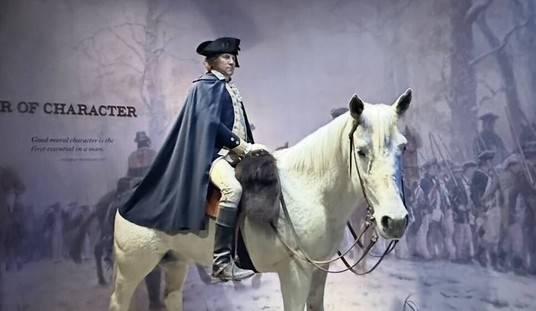Continuing a plan to get through the entire Bible in a year, follow as I journal through the reading. I have chosen a straight-forward approach that begins in Genesis and ends in Revelation. This will not be an in-depth study or a comprehensive commentary. There are plenty of sources for such material. This is stage one Bible reading, taking the text at face value and sharing impressions.
Today’s reading comes from the book of Genesis, chapters 4 through 7. These three short chapters cover much, including an account of the first murder in history, a genealogy leading from Adam to Noah, and the global flood which followed. Some impressions from the text:
- Why did God accept Abel’s offering, but reject Cain’s? A clue seems to appear in Cain’s response. He grows angry and directs his frustration at others, at God and at Abel. A sincere offering would preclude such an attitude. Cain was going through the motions of worship. His heart was not in it.
- Genealogies make for less than compelling reading, but serve an important purpose. The Bible records actual history, not mere stories. The genealogies in the Bible document actual family lineage which those reading its books at the time they were written would have been familiar with. It’s a mark of credibility. The genealogies also serve a theological role, documenting the direct lineage from Adam through King David to Jesus Christ. That lineage fulfilled prophecy, which again stands as a credential.
- Like the creation account, when we get into the genealogies and read of Adam living to the ripe old age of 930, modern readers scoff. That can’t possibly be true, right? It is if you accept biblical authority. As believers, our understanding of history must yield to its author. While we may never know the scientific details in this life, it makes sense that man would age slower coming out of a perfect condition than after generations of imperfection. We also know from the biblical account that the earth itself changed dramatically after the flood. The conditions we today take for granted were not necessarily the conditions in which Adam lived.
- Then again, human longevity may have decreased simply because God decreed it so. “My Spirit shall not abide in man forever, for he is flesh: his days shall be 120 years.” Whether this decree was affected through the physical transformation of the earth during the flood, or simply through God’s withholding of his motive power, the effect was the same.
- There’s a lot of meat on the bones in Genesis 6:5-8. We’re told of man “that every intention of the thoughts of his heart was only evil continually.” That’s quite a condemnation. It would be a mistake to consider this clinically, from afar, as if it does not apply to us. Scripture elsewhere tells us that our hearts prove the same as those who earned God’s wrath in Noah’s time. Our every intention and thought proves evil. That’s a charge we instinctively deny. We’re better than a lot of people, we tell ourselves. But other people aren’t the standard. God is the standard, and we do not meet it.
- Yet “Noah found favor in the eyes of the Lord.” Why? What made him different? Was he better than those around him? Did he do the right things and think the right thoughts? No. The only difference between Noah and everyone else was that God chose him, as He chooses people today, and enabled Noah to trust in Him. Noah was a beneficiary of the same grace available to us.
- “And Noah did all that the Lord had commanded him.” That was the full extent of Noah’s contribution. He did what he was told, trusting in the authority of the One doing the telling.
- We know that God knows everything – past, present, and future. He exists outside of time, which He created. It would therefore be an error to regard the flood account as God dealing with a mistake. When the text tells us “the Lord regretted that he had made man on the earth, and it grieved him to his heart,” it is not regret as you or I know it. God hadn’t made a mistake. The flood wasn’t Plan B. It was part of the plan all along. That’s astounding! Why create people who you know you will destroy?
- Here’s a better question. Why save any of them? Why save Noah and his family? Why not just press the reset button and start from scratch? The answer which bears out over the course of scripture is that God seeks redemption. It’s a concept of central importance to Him. Peter tells us that “even angels long to look into these things,” because their nature will never afford them an opportunity for redemption. Recall the parable of the prodigal son. There’s something special about reconciliation that makes it of greater value than having never fallen. That is why God has let history play out as it has. That is why bad things happen. It serves his glory. It enables our salvation through grace, and the incomparable joy which follows.
Return tomorrow as we continue our year-long journey through the text of the Bible.
Catch up on the previous entry:
In the Beginning: The Creation, His Rest, Our Fall – Genesis 1-3









Join the conversation as a VIP Member